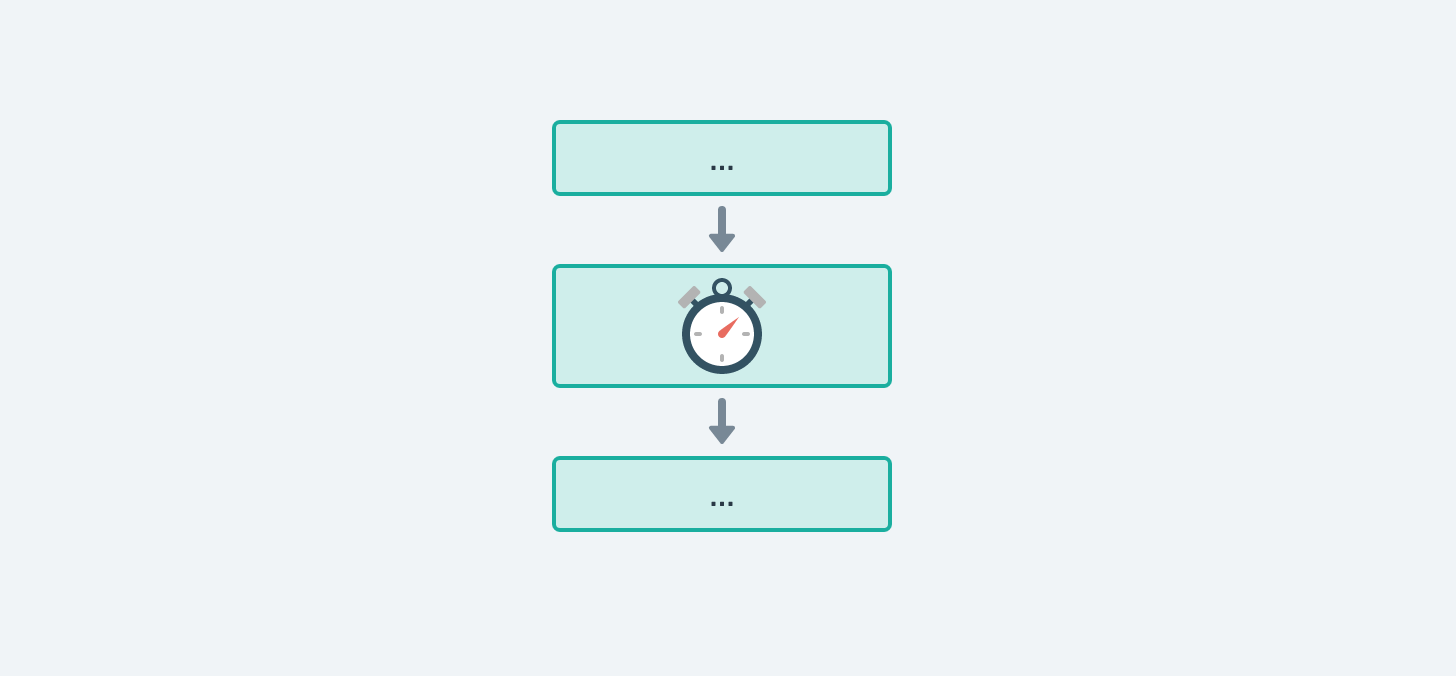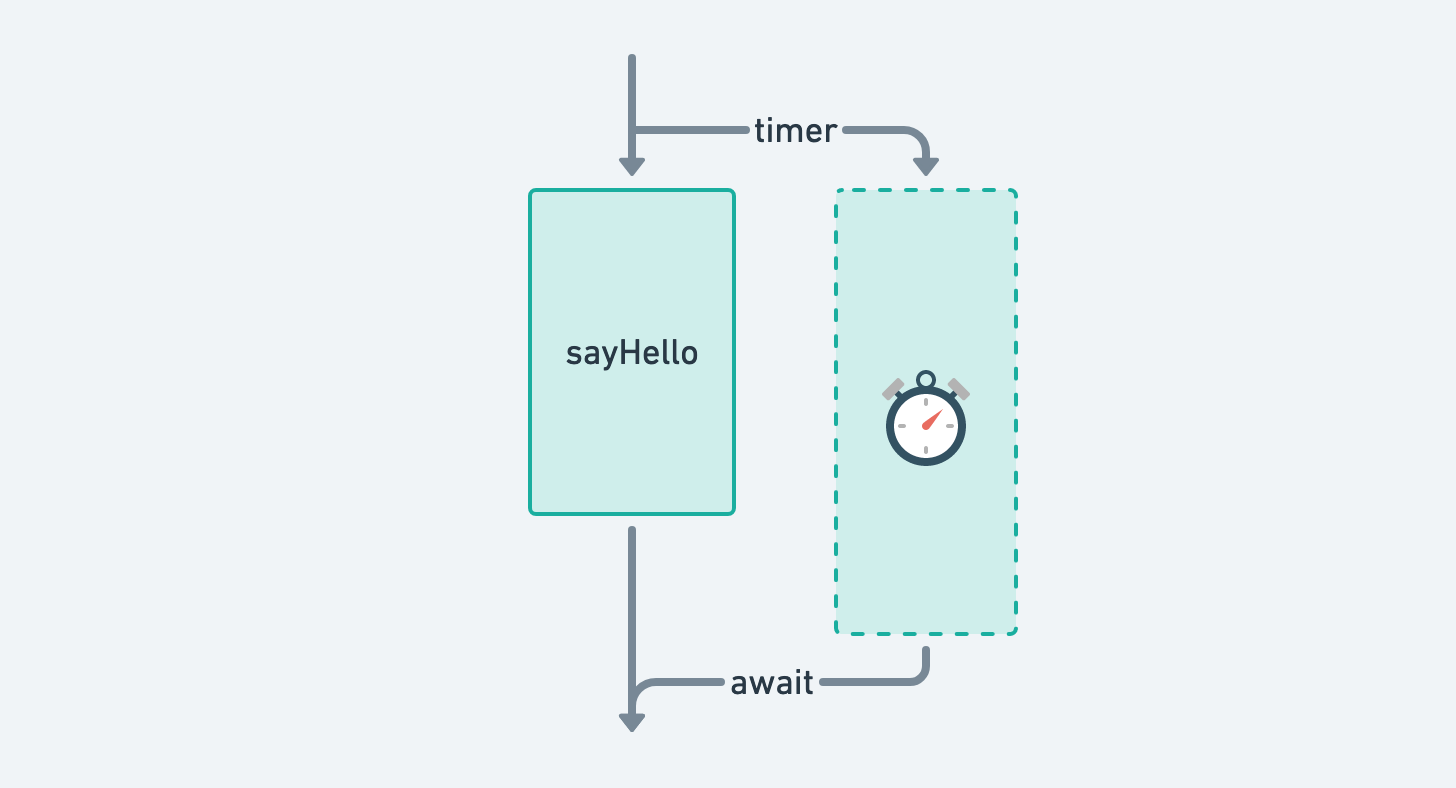Workflow
Waiting
The timer function lets us suspend the execution of a workflow for a duration or up to a chosen date:
...
Instant now = timer(Duration.ofHours(48)).await()
...
...
val now = timer(Duration.ofHours(48)).await()
...

No resource dedicated to this workflow is kept running during this waiting time.
The timer function can receive:
- a
java.time.Durationobject for waiting for a specific duration (for example, 2 days) - a
java.time.Instantobject for waiting up to a specific instant (for example, the 3rd of April 2021 at 9 pm). The time must be provided according to UTC.
If the provided duration is negative or the provided Instant is in the past, the await() method returns immediately.
The timer function immediately starts and returns a Deferred<Instant>. The workflow is blocked only by the await() method. In the example below, if the sayHello method lasts for 40 seconds, then the wait method will last for 20 seconds.
Deferred<Instant> timer = timer(Duration.ofSeconds(60));
helloService.sayHello(name);
Instant now = timer.await();
val timer = timer(Duration.ofHours(48))
helloService.sayHello(name)
val now = timer.await()

The result of the await() method is an Instant object representing the moment this timer was completed according to the workflow engine (so when the workflow resumes from the await(), the Instant returned is the current time).
